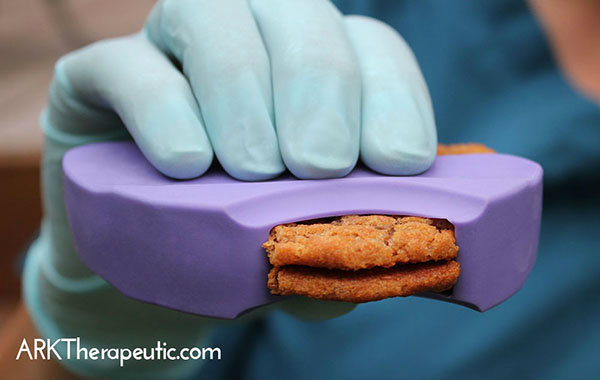Mouth Stuffing & Food Pocketing
Posted by Debra C. Lowsky, MS, CCC-SLP on 21st Nov 2012
Question: How can I keep my son from stuffing his mouth with food, not properly chewing, then getting choked when he swallows? He is 5 years old and Autistic. Do you have any idea why he does this? I assume it has something to do with his oral sensory needs, but I am not sure.
.
Yes, you're right! Stuffing food in the mouth most likely has to do with his sensory needs. Mouth stuffing and food pocketing are common symptoms of oral hyposensitivity, which is just a fancy term for not being fully able to fully feel what's going on inside your mouth. Hypersensitive individuals are under-sensitive with limited oral awareness. As a result, they may stuff their mouths in an attempt to actually feel the food. Small bites do not provide enough sensory information; it is only with larger bites that they are able to feel food in their cheeks and on their tongues. And without that input, it's hard to develop a correct chewing and swallowing pattern. Imagine not being able to feel food in your mouth - not only is it difficult to manage the food, but it's also scary! So he'll need to to work on increasing oral awareness and normalizing oral sensitivities.
Also, I wonder if he is eating too fast and needs to be paced. Take a bite of whatever he is eating and count how many chews it takes you to break down the food. Then tell him he needs to chew at least __ amount of times for each bite. Let him swallow, count to three, and then allow him to take another bite. This should slow him down. You can create a visual schedule with words or pictures to show him these steps.
.
.
It may also help to show him exactly how big a bite is supposed to be. You can cut the pieces into the right sizes for him. Or, you can slide a piece of food through The Right Bite. This will allow you to present exactly the right portion to him so that he can see how much he is supposed to bite. Over time, he will get better at visually judging the food.
As always, it would be best to consult a speech-language pathologist and/or occupational therapist trained in sensory issues for a full evaluation in person.
.
All my best,
Debbie
Debra C. Lowsky, MS, CCC-SLP
.


